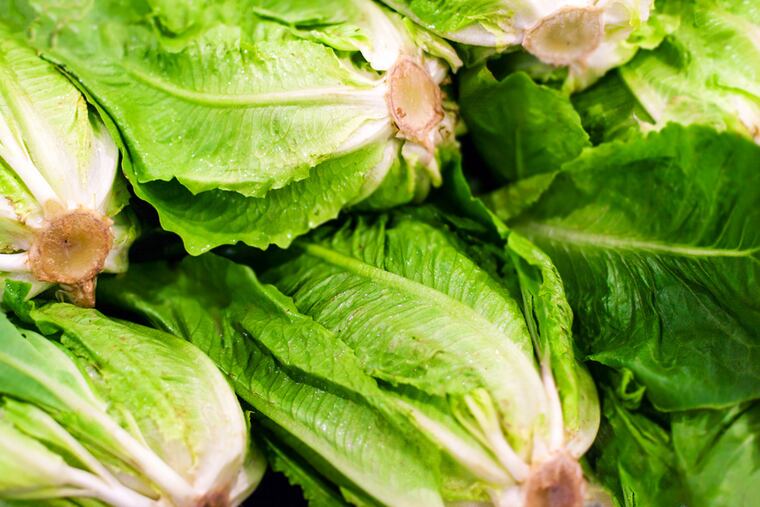Romaine lettuce is not safe to eat, CDC warns U.S. consumers
Restaurants should not serve it, stores should not sell it, and people should not buy it, no matter where or when the lettuce was grown

Romaine lettuce is unsafe to eat in any form, the Centers for Disease Control and Prevention said Tuesday in a broad alert in response to a new outbreak of illnesses caused by a particularly dangerous type of E. coli contamination.
The CDC told consumers to throw away any romaine lettuce they may already have purchased. Restaurants should not serve it, stores should not sell it, and people should not buy it, no matter where or when the lettuce was grown. It doesn't matter if it is chopped, whole head, or part of a mix. All romaine should be avoided.
The CDC alert, issued just two days before Americans sit down for their Thanksgiving dinners, reported that 32 people in 11 states have become sick from eating contaminated romaine. Of those, 13 have been hospitalized, with one patient suffering from a form of kidney failure. No deaths have been reported.
In the Philadelphia region, Acme Markets suspended sales after the alert was issued, the company said in a statement. "In response to the Centers for Disease Control's Consumer Advisory issued Nov. 20, Acme is removing all romaine lettuce and products containing romaine lettuce from sale due to potential contamination of E. coli 0157:H7. Customers who have purchased these products should discard them or return them for a full refund," the market chain said.
Darden Restaurants, which operates Olive Garden, LongHorn Steakhouse, Capital Grille, and other chains, began removing the lettuce from all its locations immediately after receiving the safety alert, a company spokesman said.
In Philadelphia, the Trader Joe's store on Market Street in Center City sold romaine hearts and chopped romaine until Tuesday's alert was issued.
"Right now we've suspended all sales," said Kate Becker, a store manager. Becker said she didn't believe customers were even aware yet of the government alert. "If anyone wants to return the romaine, they can return it," she said.
The origin of the outbreak is unknown and remains under investigation. The CDC did not limit the warning to romaine from any particular agricultural area.
A common strain of E. coli was detected in six of the sickened people, and appears to match the bacterial strain found in an outbreak of illnesses from contaminated leafy greens late last year that affected people in both the United States and Canada. That outbreak was declared over in January.
Five people died in the most recent major outbreak from contaminated romaine, which lasted from March to June of this year and led to 210 cases in 36 states. That outbreak was traced to the Yuma, Ariz., growing region, but investigators never conclusively determined the precise source.
All three outbreaks — the current one, the one from Yuma, and the one from last year — are caused by contamination by this deadly strain called E. coli O157:H7. It produces a Shiga toxin that can cause hemolytic uremic syndrome, a type of kidney failure. Until the 1990s, most E. coli cases in humans came from eating contaminated hamburger. In more recent years, after reforms in the livestock industry, the outbreaks have been most often associated with leafy greens.
Earlier this year, in response to another romaine-linked E. coli outbreak, nine groups, including the Philadelphia-based Pew Charitable Trusts, sent a letter to U.S. Food and Drug Administration Commissioner Scott Gottlieb calling on the agency to propose new record-keeping requirements for foods at high risk of contamination.
Five years ago, the federal Food Safety and Modernization Act mandated that the agency come up with such a plan, but it never happened.
Some big retailers, however, aren't waiting for the FDA. In September, Walmart announced it will use blockchain, a type of database technology, to keep track of leafy greens. By this time next year, suppliers are expected to have systems in place to provide "real-time, end-to-end traceability from farm to table," Walmart said in a news release.
Staff writers Robert Moran and Marie McCullough contributed to this article.